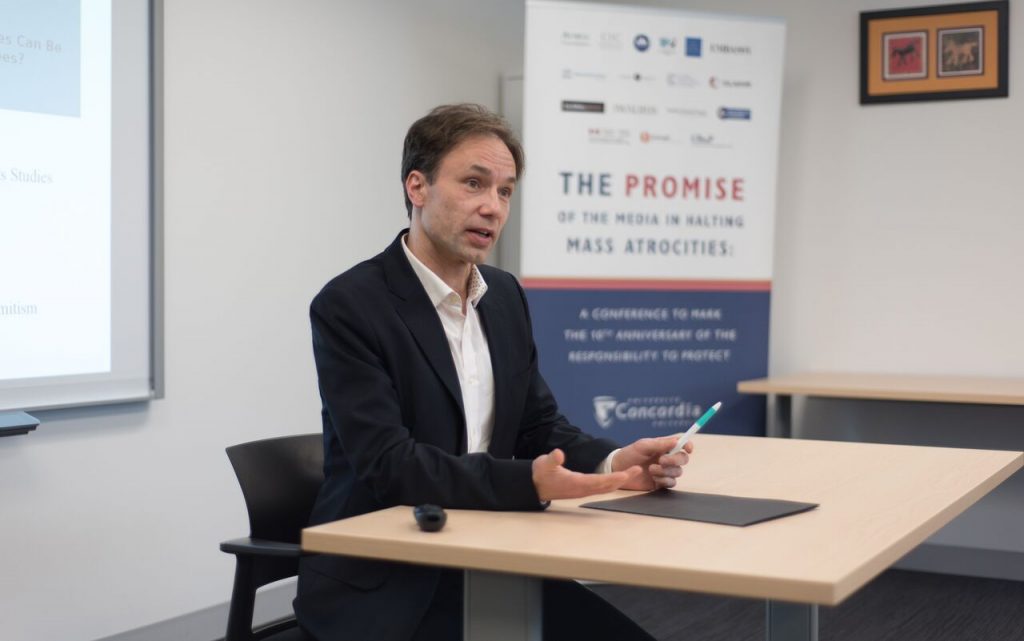MIGS invited German anti-Semitism researcher Günther Jikeli to host the talk
Anti-semitism expert Günther Jikeli challenged Concordia students and faculty to confront Muslim-European anti-Semitism in a recent talk.
“Muslim Anti-Semitism in Europe: What Changes Can Be Expected With The New Wave of Refugees?” was presented to a dozen attendees on Feb. 17. The event was organized by the Montreal Institute for Genocide and Human Rights Studies (MIGS), a Concordia-based research group which advocates for genocide education and government intervention in cases of genocide.
Anti-Semitism, Jikeli said, is more common among Muslims than among the general European population.
Citing his own 2006 study for the Institute for the Study of Global Anti-Semitism and Policy, Jikeli said that Muslims in France, Britain, Germany and Spain were on average 10 times more likely than the general population to hold “very unfavorable” views of Jews.
In Spain alone, 60 per cent of Muslims held “somewhat unfavorable” or “very unfavorable” views of Jews, according to Jikeli’s research. In a 2014 survey by French think tank Fondapol, more than half of French Muslims felt Jews had too much influence in politics, the media and the economy.

Jikeli said there are currently 22 million Muslims within the European Union, representing 4.3 per cent of the total population. Seventy per cent of them live in the U.K., France or Germany.
Based on his own survey of European Muslims, Jikeli identified four distinct forms of Muslim anti-Semitism: hatred grounded in conspiracy theories about Jews and their influence, anti-Zionism that associates all Jews with Israel, ethnic narratives about Jews and Muslims being sworn enemies, and anti-Semitism with no clear foundation.
Jikeli said there is no correlation between anti-Semitism and economic status or education, areas in which European Muslims are often disadvantaged.

Despite these findings, Jikeli cautioned against sweeping generalizations. “[European Muslims] are very diverse and even in conflict with each other very often,” Jikeli said. He also warned of European Islamist organizations which claim to represent Muslims, but are statistically viewed unfavorably by many European Muslims.
Jikeli identified other sources of anti-Semitism in Europe as well, including far-right nationalism and anti-Zionism from the political left.
According to MIGS Executive Director Kyle Matthews, Jikeli’s findings are relevant for Canadians as well as for Europeans. “Mr. Jikeli’s research poses important ethical questions with regards to what is the best strategy to help and assist refugees fleeing war and persecution,” he said.
Jikeli said that in order to properly integrate migrants and refugees into Canadian society, Canadians must be aware of other nations’ struggles with respect to integration.
He also warned that anti-Semitism is a global phenomenon. “I think people don’t want to face that there is, today, anti-Semitism among Muslims, but also among non-Muslims,” said Jikeli. “To face it is difficult, challenging, because then we have to think sometimes about our own society.”




